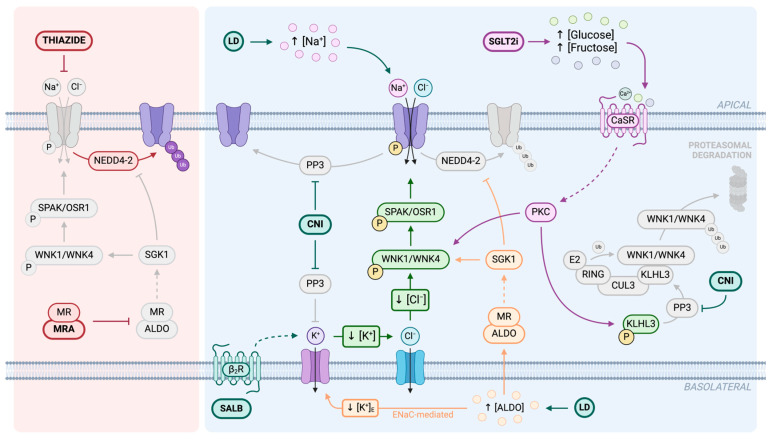Figure 5.
Pharmacological modulation of NCC function in the DCT. Inhibitors are shown in red, while enhancers are shown in light blue. Thiazide diuretics directly inhibit NCC blocking ion translocation, while mineralocorticoid receptor antagonists (MRA) act indirectly, blocking the MR-mediated effect of aldosterone. Loop diuretics (LD) activate the NCC, increasing the amount of sodium delivered to the DCT and the secretion of aldosterone, which increases NCC activity in both an MR-dependent and an MR-independent manner. Calcineurin inhibitors (CNI) decrease PP3-mediated dephosphorylation of NCC, basolateral K+ channel, and KLHL3, thus stimulating NCC activity at various levels. Salbutamol (SALB) could activate basolateral K+ channel through a signaling pathway likely mediated by β2-adrenergic receptor. A drop in K+ intracellular concentration eventually triggers WNK-SPAK/OSR1-NCC cascade. SGLT2 inhibitors (SGLT2i, shown in purple) may influence NCC activity, increasing the delivery of glucose and fructose to the DCT and possibly stimulating a signaling pathway involving the calcium-sensing receptor (CaSR) and protein kinase C (PKC). Figure created in BioRender.com [6].

